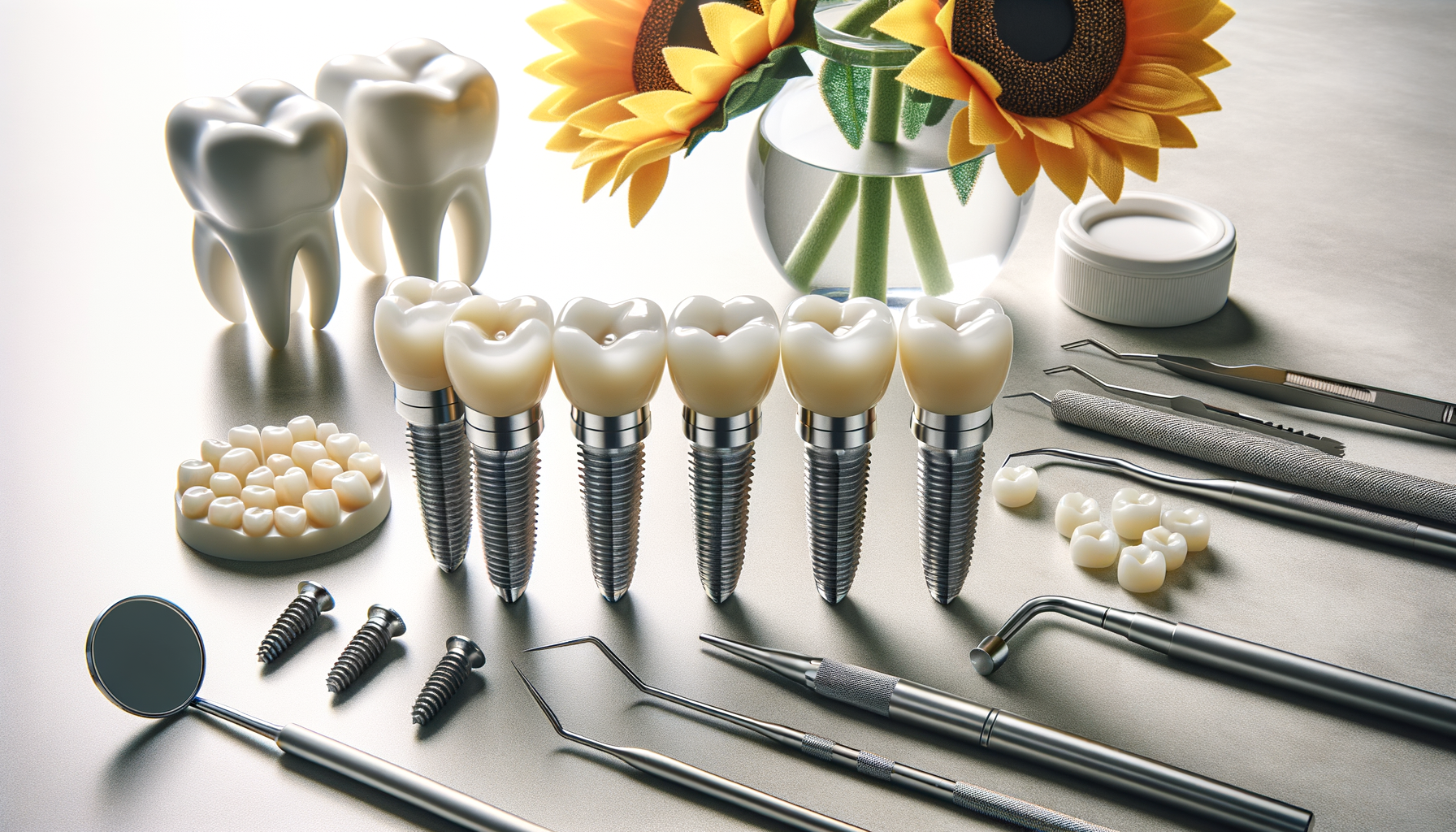Introduction to Dental Implants for Seniors
As we age, maintaining dental health becomes increasingly important. Missing teeth can affect not only our ability to chew and speak but also our confidence and quality of life. For seniors, dental implants offer a promising solution to these challenges. Unlike traditional dentures, dental implants are designed to provide a permanent and stable replacement for missing teeth, enhancing comfort and function.
Dental implants are small titanium posts surgically placed into the jawbone, serving as roots for artificial teeth. This innovative approach has gained popularity among seniors due to its ability to mimic the look and feel of natural teeth. With the aging population on the rise, understanding the benefits and considerations of dental implants is essential for those seeking to improve their oral health and overall well-being.
Benefits of Dental Implants Over Traditional Dentures
Dental implants offer several advantages over traditional dentures, making them an attractive option for seniors looking to restore their smiles. One significant benefit is the stability they provide. Unlike dentures, which can slip or shift during eating or speaking, dental implants are securely anchored in the jawbone, offering a stable and comfortable fit.
Another advantage is the preservation of jawbone health. When teeth are missing, the jawbone can begin to deteriorate over time. Dental implants stimulate the bone, helping to maintain its density and prevent further bone loss. This is crucial for maintaining facial structure and preventing the sunken appearance often associated with missing teeth.
Moreover, dental implants eliminate the need for messy adhesives and the discomfort of removable dentures. Seniors can enjoy a more natural eating experience and speak with confidence, knowing their teeth are securely in place. Additionally, implants are designed to be long-lasting, with proper care, they can last a lifetime, reducing the need for frequent replacements associated with dentures.
Considerations for Seniors Considering Dental Implants
While dental implants offer numerous benefits, there are important considerations seniors should be aware of before opting for this treatment. One key factor is the overall health of the jawbone. Adequate bone density is necessary to support the implants, and some seniors may require bone grafting procedures to strengthen the jawbone before implantation.
Another consideration is the cost. Dental implants can be more expensive upfront compared to dentures. However, their durability and low maintenance needs can make them a cost-effective solution in the long run. Seniors should discuss financing options with their dental provider to determine the best approach for their budget.
Seniors should also consider their overall health and any medical conditions that might affect the healing process. Conditions such as diabetes or osteoporosis can impact recovery and the success of the implants. A thorough evaluation by a dental professional can help determine if implants are a suitable option.
The Implant Procedure: What Seniors Can Expect
The process of getting dental implants typically involves several stages, starting with an initial consultation and examination. During this phase, the dental professional will assess the patient’s oral health, take X-rays, and discuss the treatment plan.
The next step is the surgical placement of the implants into the jawbone. This procedure is usually performed under local anesthesia, and most patients experience minimal discomfort. After the surgery, a healing period of several months is necessary to allow the implants to integrate with the bone, a process known as osseointegration.
Once the implants have fused with the bone, the next phase involves placing abutments and custom-made crowns. This final step restores the appearance and function of the teeth, allowing seniors to enjoy their favorite foods and smile with confidence.
Throughout the process, regular follow-up appointments are essential to monitor healing and ensure the success of the implants. Dental professionals will provide guidance on maintaining oral hygiene to prolong the life of the implants.
Conclusion: Enhancing Quality of Life with Dental Implants
For seniors seeking a reliable and comfortable solution to missing teeth, dental implants offer an exceptional option. By providing stability, preserving jawbone health, and enhancing overall oral function, implants can significantly improve quality of life.
While the decision to pursue dental implants involves careful consideration of factors such as cost and health conditions, the benefits they provide make them a worthwhile investment for many seniors. With proper care and regular dental check-ups, implants can offer a lifetime of improved oral health and confidence.
Seniors interested in exploring dental implants should consult with a qualified dental professional to discuss their individual needs and determine the most suitable treatment plan. By taking this step, seniors can look forward to a future of enhanced comfort, function, and self-assurance.




Leave a Reply